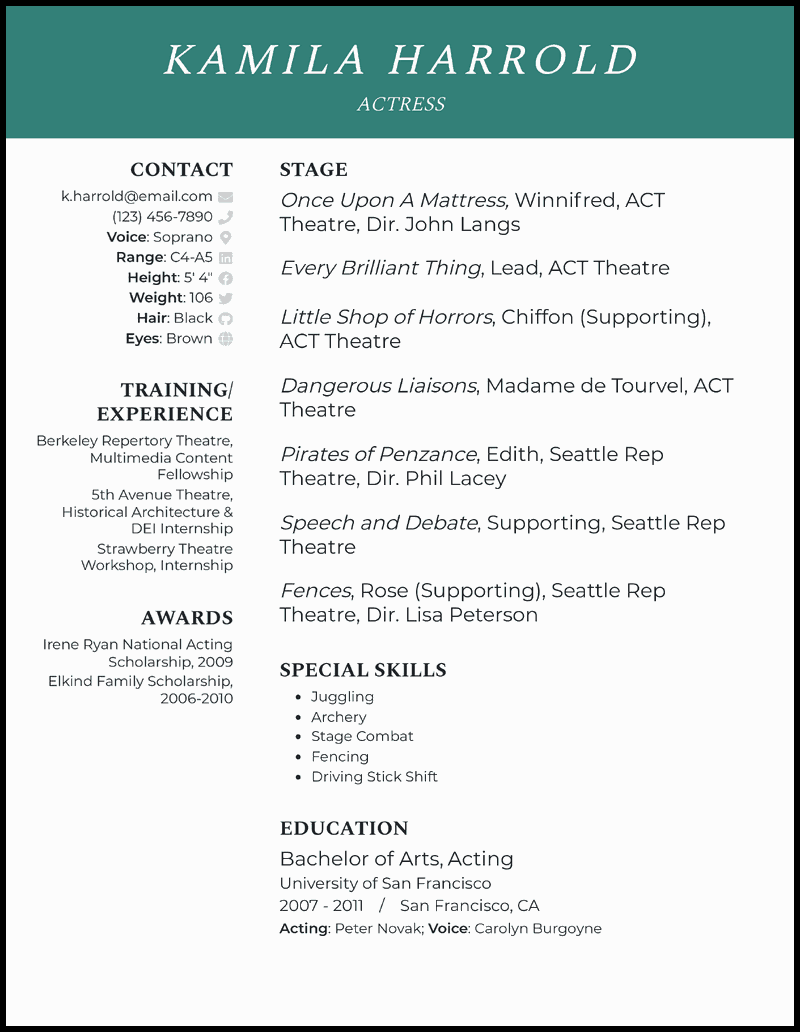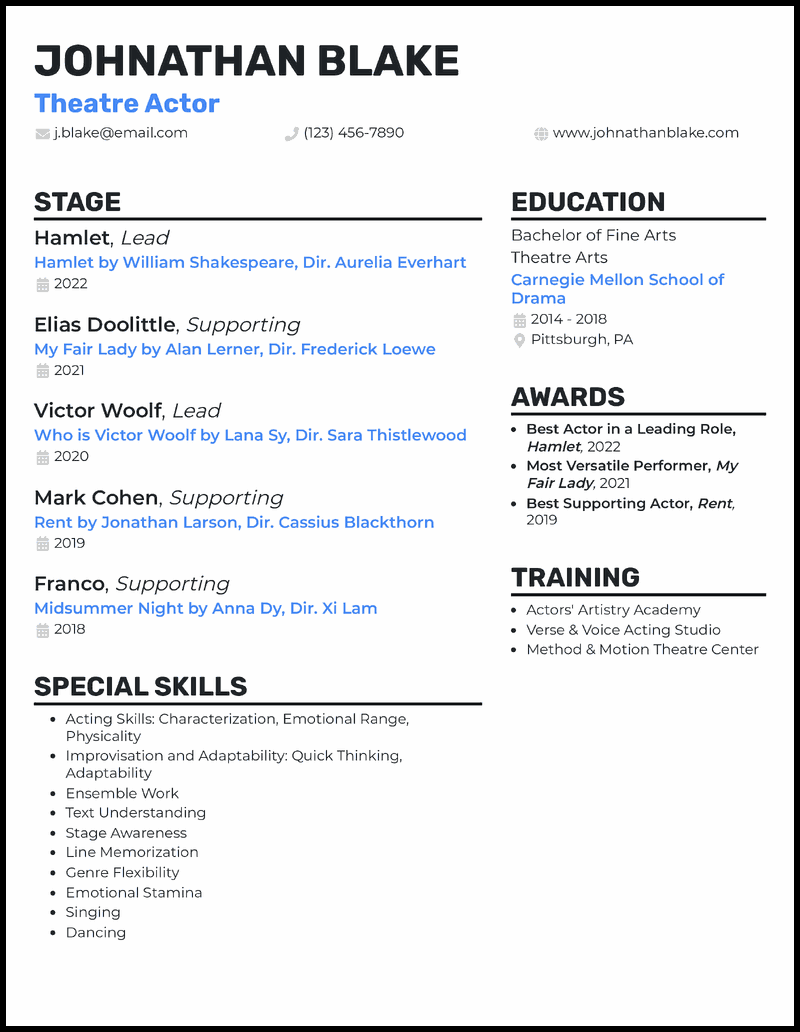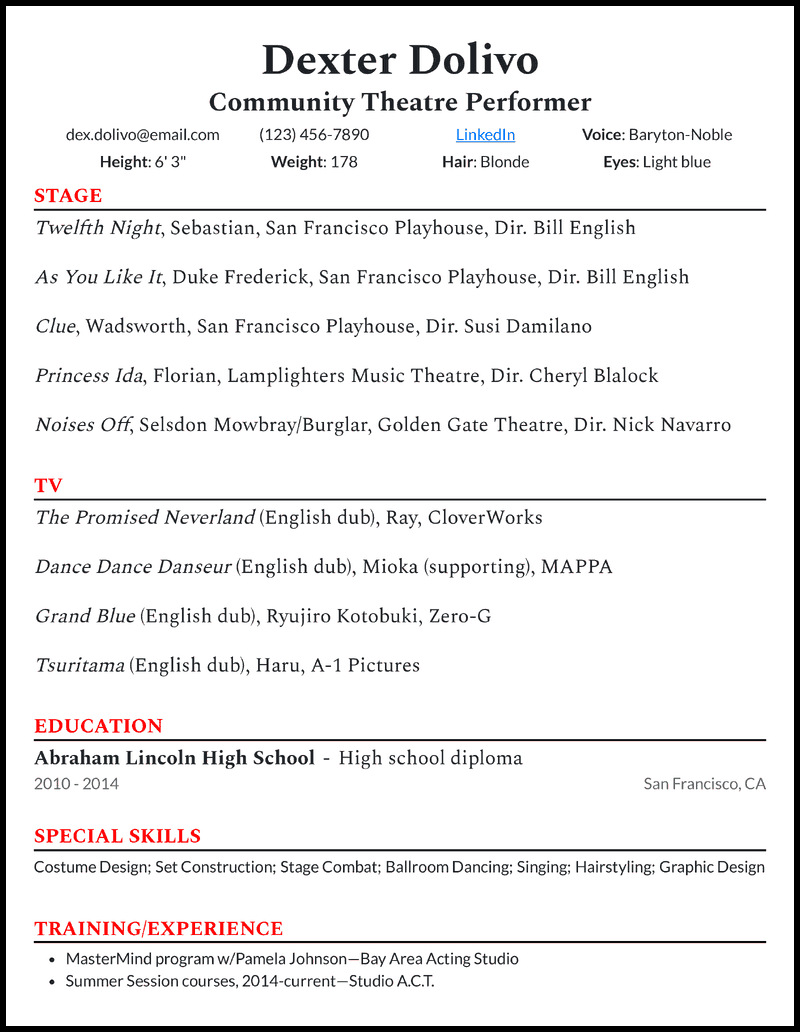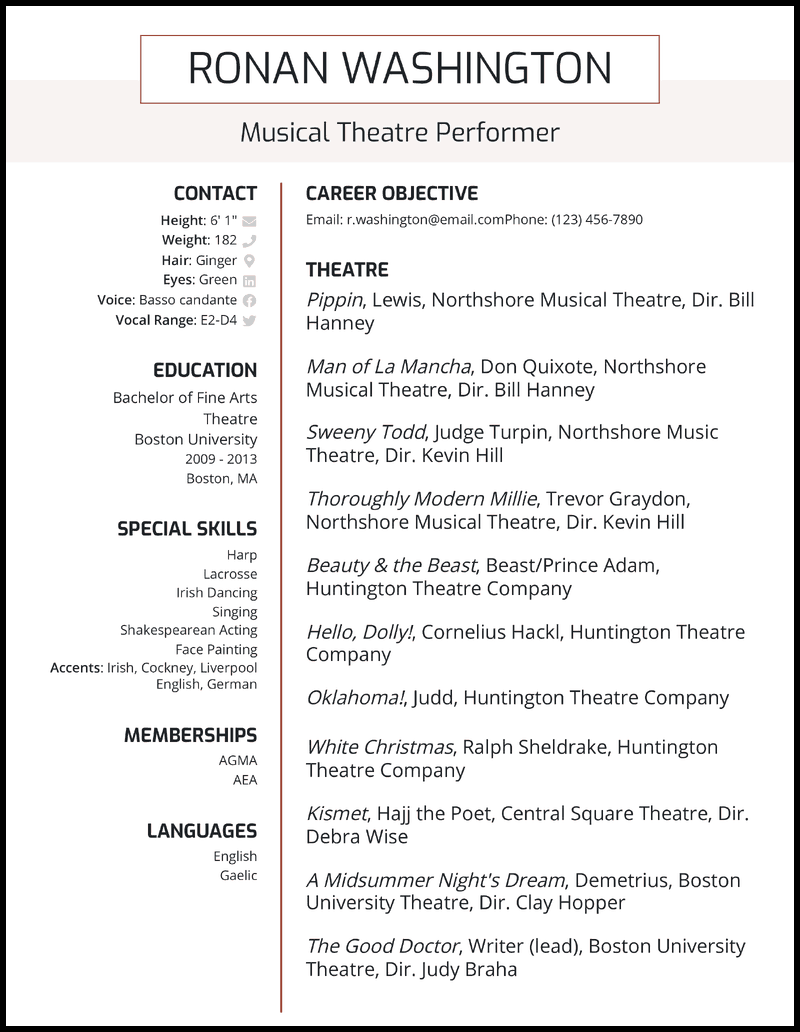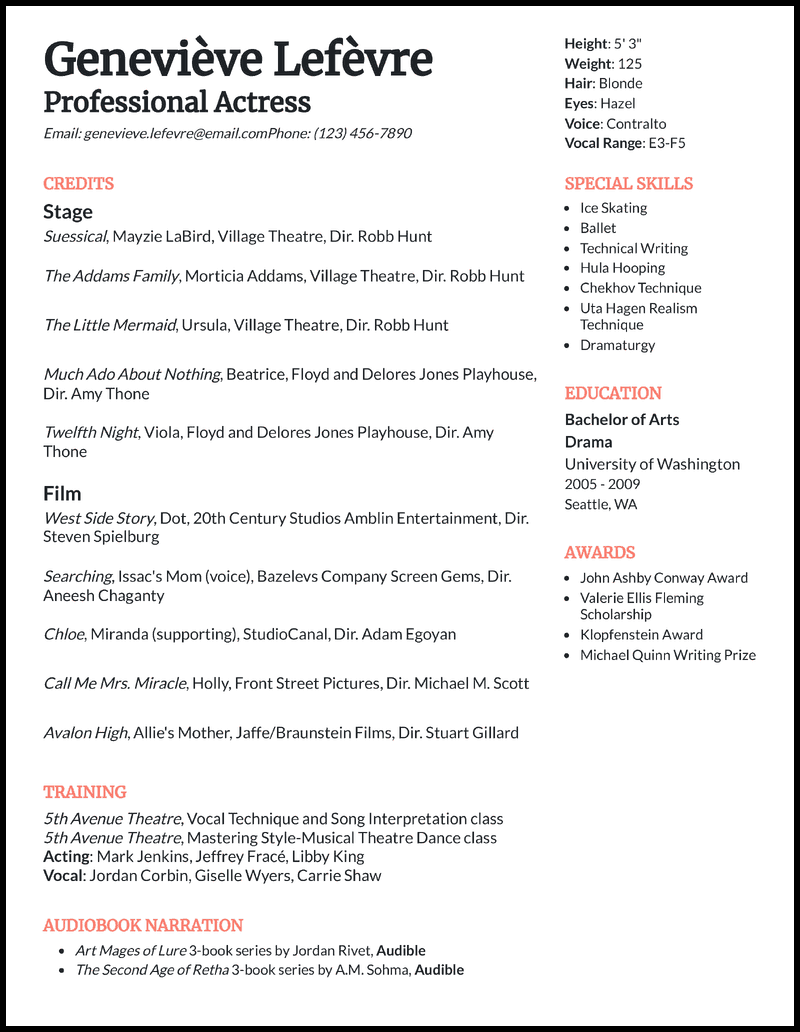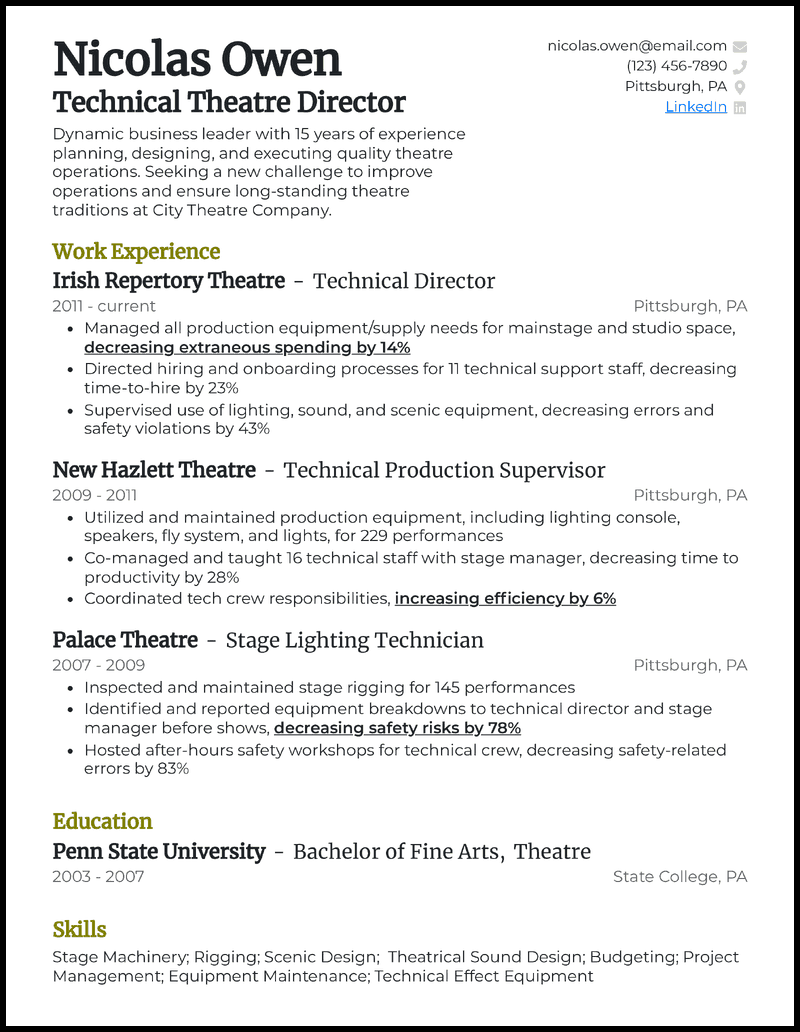Whether you want to be a community performer, work backstage with lights and sound, or make it as a professional actor, there are many ways to apply your skills and ambition to the world of theatre.
However, landing a job in this industry isn’t easy. Acting roles are increasingly subjective, and with so many vying for the same role, it’s tough to get hiring managers to notice you among the crowd. That’s why you need a polished, professional resume and a cover letter generator based on the job description to put you in the spotlight.
Creating a stunning theatre resume is easier than you think. Our seven theatre resume samples and writing advice will help you land your next theatre job in 2025. Lights, camera, action!
Why this resume works
- Theatre resumes need to catch the eye of directors, which means your resume needs to be aesthetically pleasing and comprehensive. How do you do that? By formatting your resume according to theatre standards.
- Typical resumes use bulleted paragraphs to list work experience, but your credentials need to be in a sentence format. Make sure you include the show’s title, your role, where you performed, and the director (if their name is known among theatre circles).
- Your contact information will also be different, as you need to include your height, weight, vocal type, and vocal range in addition to your email and phone number.
- Being an actor doesn’t require a degree, but if you do have formal theatre education or certifications, list them in your education or training sections. You can also include awards, classes, or workshops—any education you’ve had regarding theatre is worth including on your theatre resume.
Why this resume works
- Formatting your theatre actor resume to give prominence to your stage experiences makes it easy for potential employers to pick your strengths. But that won’t get your dream acting contract.
- Keep pulling more surprises by listing your awards (hint: best actor, most versatile performer, best-supporting actor, etc.), starting with the most recent one.
Why this resume works
- Your community theatre resume is often the first impression a potential employer has of you (unless you’ve worked with that company before). Your resume and theatre cover letter are considered the most crucial steps taken during a job search, so make sure they’re completely error-free.
- Using a resume checker or spell check system is a great way to ensure your resume is free of any typos, grammar inconsistencies, or punctuation errors.
- Even if you haven’t done many shows, you can include other experience, such as TV shows, films, voiceovers, or audiobook narration. Anything that includes acting, singing, or dancing can be an asset.
Why this resume works
- While showcasing your past works and audience numbers are a great way to start off your theatre director resume, there’s yet another secret to making your piece a favorite among recruiters. How?
- Adding a section of special skills underscores your versatility and the overall value you’ll add to projects and the entire cast.
Why this resume works
- Writing your resume can feel like a challenge, so start by listing your most relevant roles. Then mull over the skills your future director might like, and what additional certifications or qualifications you can include.
- You can also list any memberships you have, which can help if your director or producer recognizes your affiliation.
- Your musical theatre resume doesn’t have to be boring! Including a pop of color, different fonts, and other formatting elements can help your resume look beautiful and get you noticed.
Why this resume works
- Structuring your professional theatre resume may appear difficult, but it’s not much different than a normal theatre resume.
- Start by putting your experience in reverse-chronological order. Don’t include every show or role, though; only include the credits that apply to the role you’re seeking.
- With a few years or more of experience in professional theatre, you’re bound to have many skills for your resume’s skills section, but make sure you limit them to the ones directors will want to see.
- Focus on specific acting techniques, sports, or unique abilities that make you different from other performers.
- For example, while juggling or hula hooping isn’t standard resume fare, they’re both fair game for a theatre resume! Just make sure you’re able to demonstrate mastery over those skills in case directors want to see them.
Why this resume works
- Notice that a technical theatre resume can be formatted differently than a performer resume. Performer resumes focus on individual roles, while a technical theatre resume focuses on responsibilities you undertook at your job.
- This kind of resume requires more detail for each position, so focus on three to four tasks or achievements you completed during each position, especially if you can pair them with numbers.
- If you have the space, we’d recommend adding a resume summary (also called a career summary). A resume summary allows you to show your skills and experience in two to three sentences, which is crucial in the fast-paced world of theatre.




![7 Theatre Resume Examples [& Templates]](https://beamjobs.wpenginepowered.com/wp-content/uploads/2024/01/theatre-resume.png)
